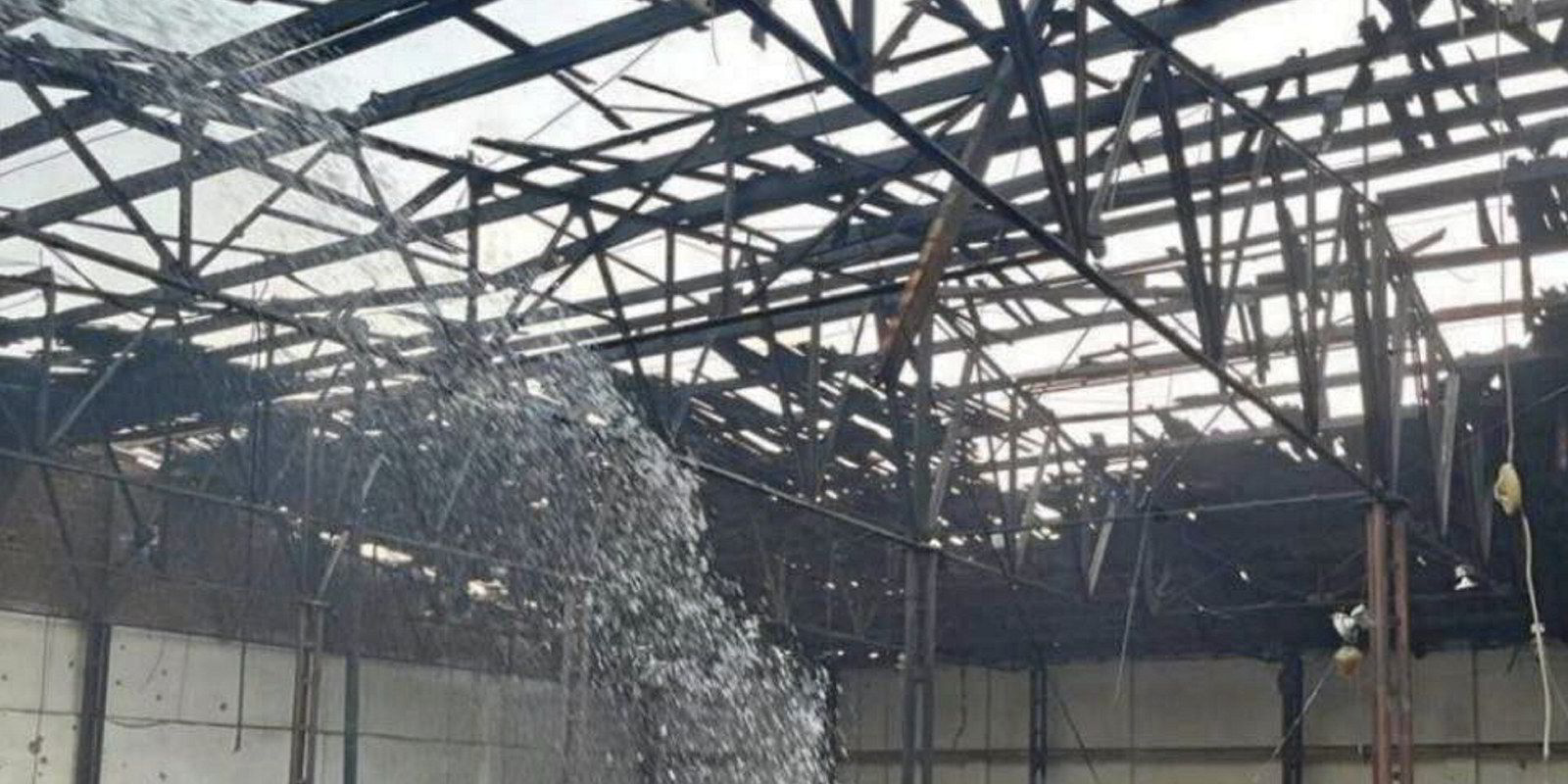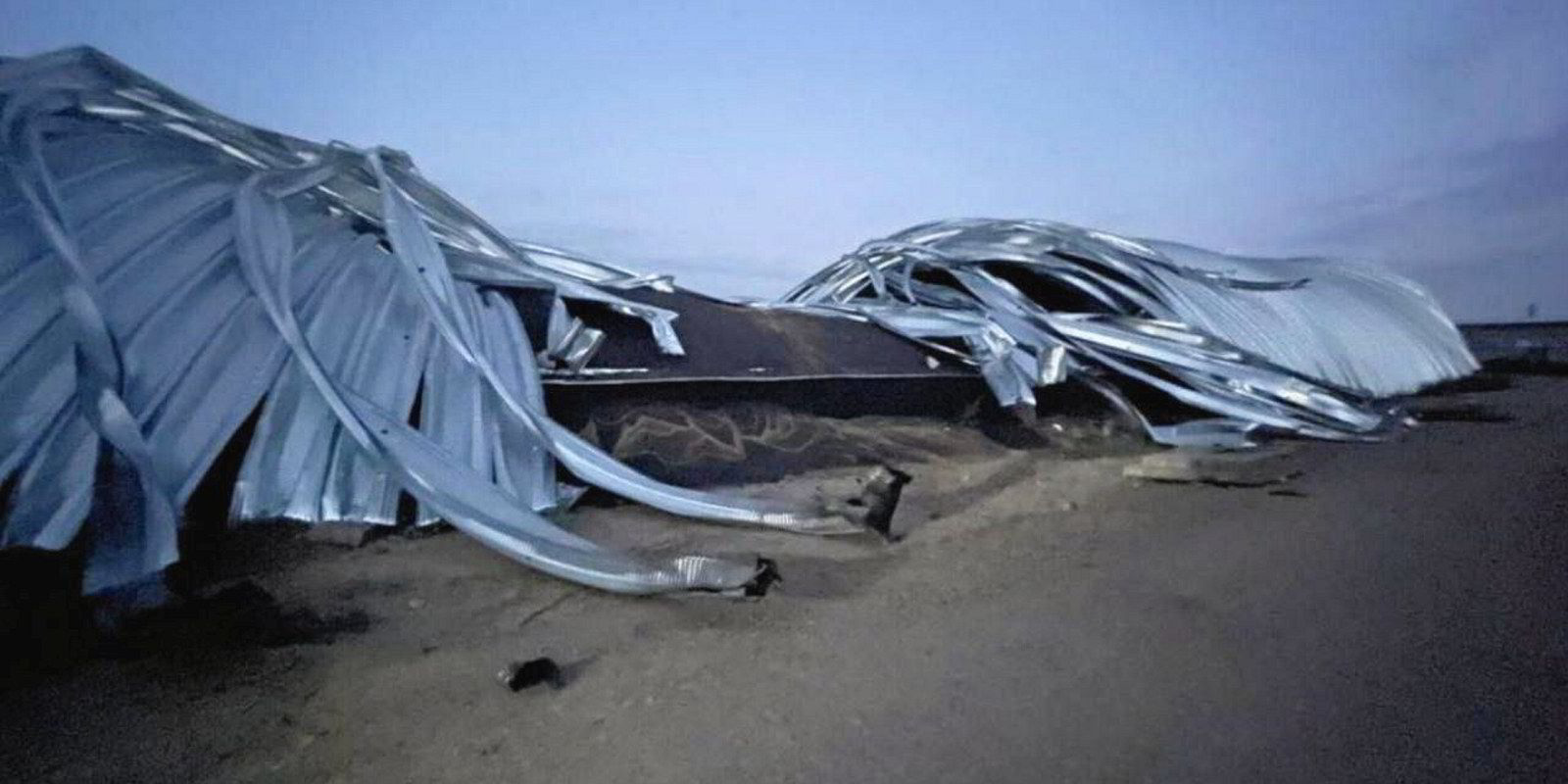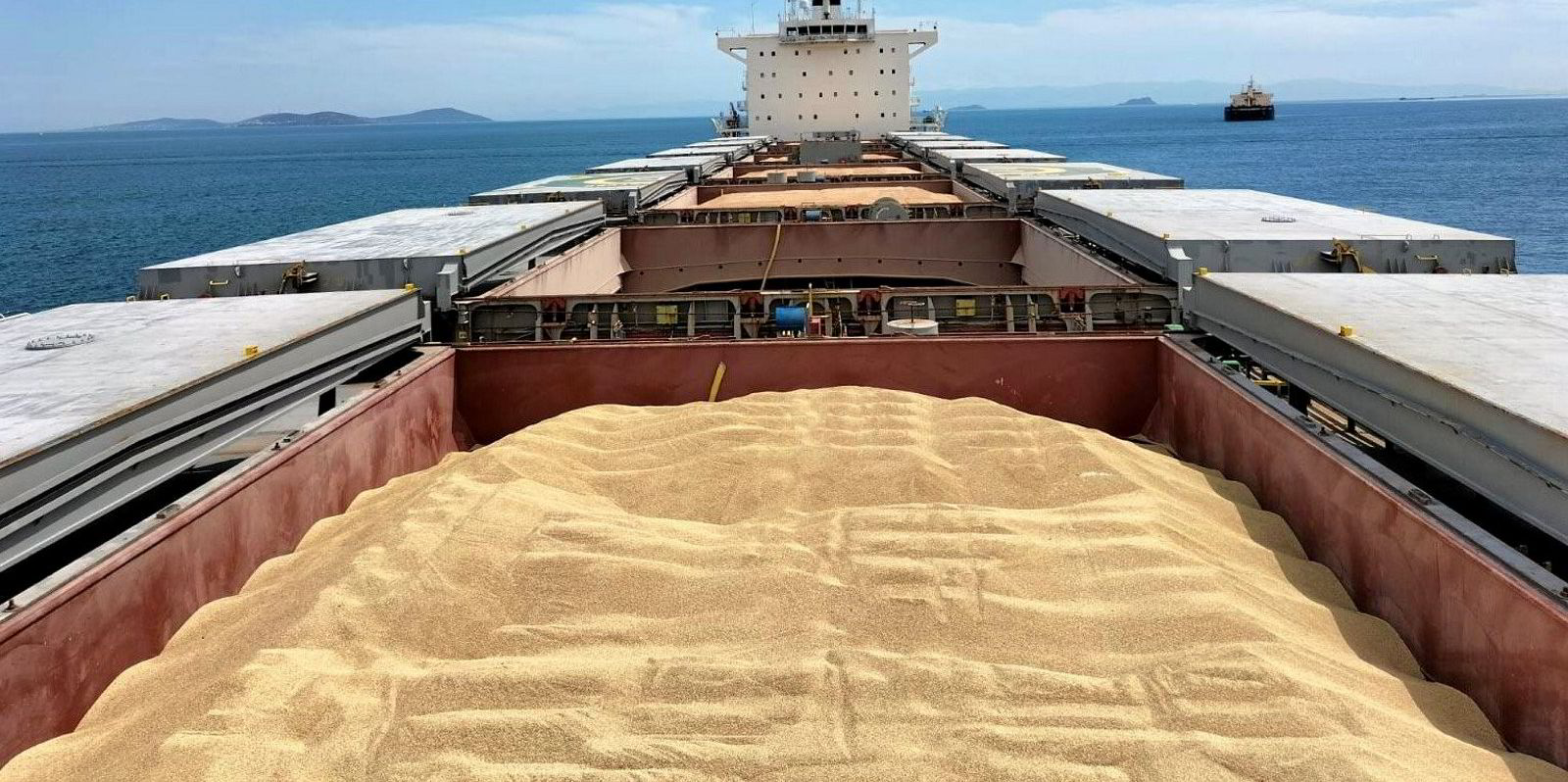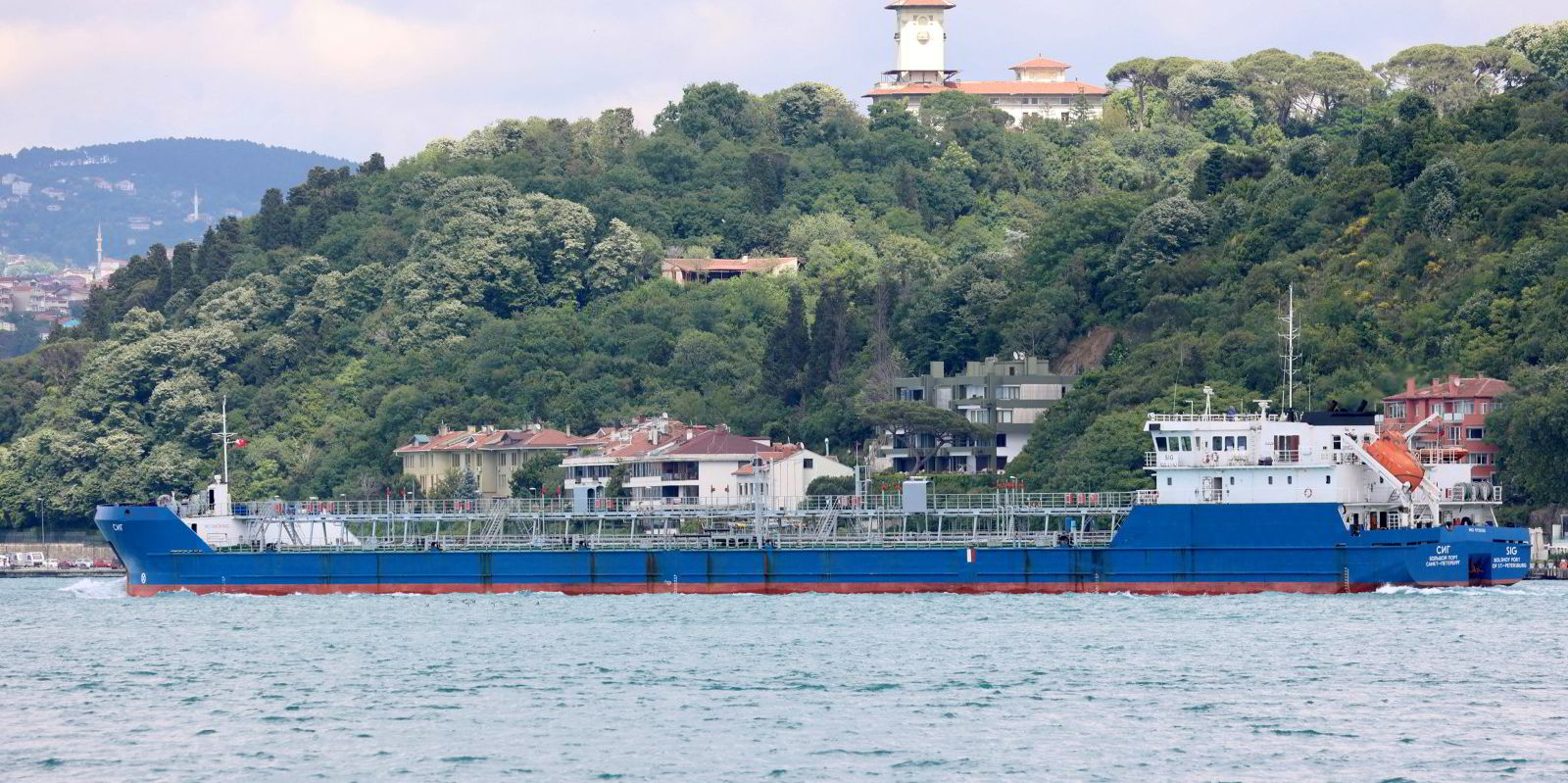Russia stepped up drone attacks on Ukrainian granaries, both in Odesa and by the Danube early on Wednesday, signalling its intent to disrupt whatever is left of the war-torn country’s grain trade and taking out more than a tenth of its export capacity.
Drones taking off from the Russian-occupied Sea of Azov have hit civilian infrastructure at Odesa, according to the Ukrainian military.
A separate swarm of drones took out grain facilities to the country’s south.
“The enemy targeted… granaries and a production and transshipment complex in the Danube,” the Defence Forces of Southern Ukraine said in a statement.
According to infrastructure minister Oleksand Kubrakov, “several private grain terminals and storage facilities” in the port of Izmail were hit, damaging 13,000 tons of grain intended for Egypt and Romania.
Ukraine's export capacity in the region was reduced by 15% following the attack, Kubrakov said.
Unofficial Russian Telegram channels, said the port of Reni was hit as well.
“There were more Geraniums [drones] than usual, explosions rumbled all night,” a usually well-informed Russian telegram channel said.
Russia has hit Odesa and the two Danube ports before, ever since it withdrew last month from a UN-led corridor for the safe, seaborne export of Ukrainian grain.
According to Kubrakov, this was the 8th attack on Ukrainian port infrastructure in that period, destroying a total of 270,000 tons of grain.
In the past, Moscow has justified such attacks with the intent to take out oil depots or port infrastructure used by the Ukrainian military to build or deploy naval drones against Russian targets.

However, it is hard to not also see them as an attempt by Moscow to forestall Ukrainian attempts to revive Ukrainian grain exports from Odesa and other major, nearby grain ports, as well as to disrupt the country's existing trade through the Danube.
Ever since the demise of the UN grain deal last month, the Kyiv government has been trying to set up an alternative grain corridor, protected by its own arms and that of its Western allies and underpinned by insurance schemes currently under negotiation, as TradeWinds reported.
Speaking in Athens earlier this week, Ukrainian president Volodymyr Zelenskyy vaguely said that there were Greek companies ready to engage in such a trade.
However, any such scheme has so far stumbled on Western countries’ reluctance to be embroiled in a direct confrontation with Russia that could lead to World War III.
Despite Zelenskyy’s statements, it is also hard to imagine shipowners employing their ships in a war zone for a low-margin, low-profit trade such as grain.
Russia’s attacks on Wednesday will have made their reluctance only stronger.
Drone attacks on the Danube have not hit any vessels yet. However, they have helped disrupt and delay ship traffic in the area, especially as they are occasionally backed up by inspections-in-force of commercial vessels by Russian warships.
Ukraine has been trying to promote the Danube River as an alternative way to export its grain, with the help of its EU neighbours and allies.
Even if it was unhindered, however, the Danube trade can in no way be a substitute for the volumes Ukraine had been so far able to export by sea.
Meanwhile, Russia’s seaborne grain trade has been going from strength to strength, including from Ukraine’s Azov Sea regions that Moscow has annexed.
That trade, however, carries risks as well, as Ukraine is trying to retaliate by directly attacking its enemy's shipping — a step that Moscow has so far refrained from undertaking.
Earlier this month, a Ukrainian naval drone hit a commercial Russian tanker, prompting Moscow protests at the IMO.





